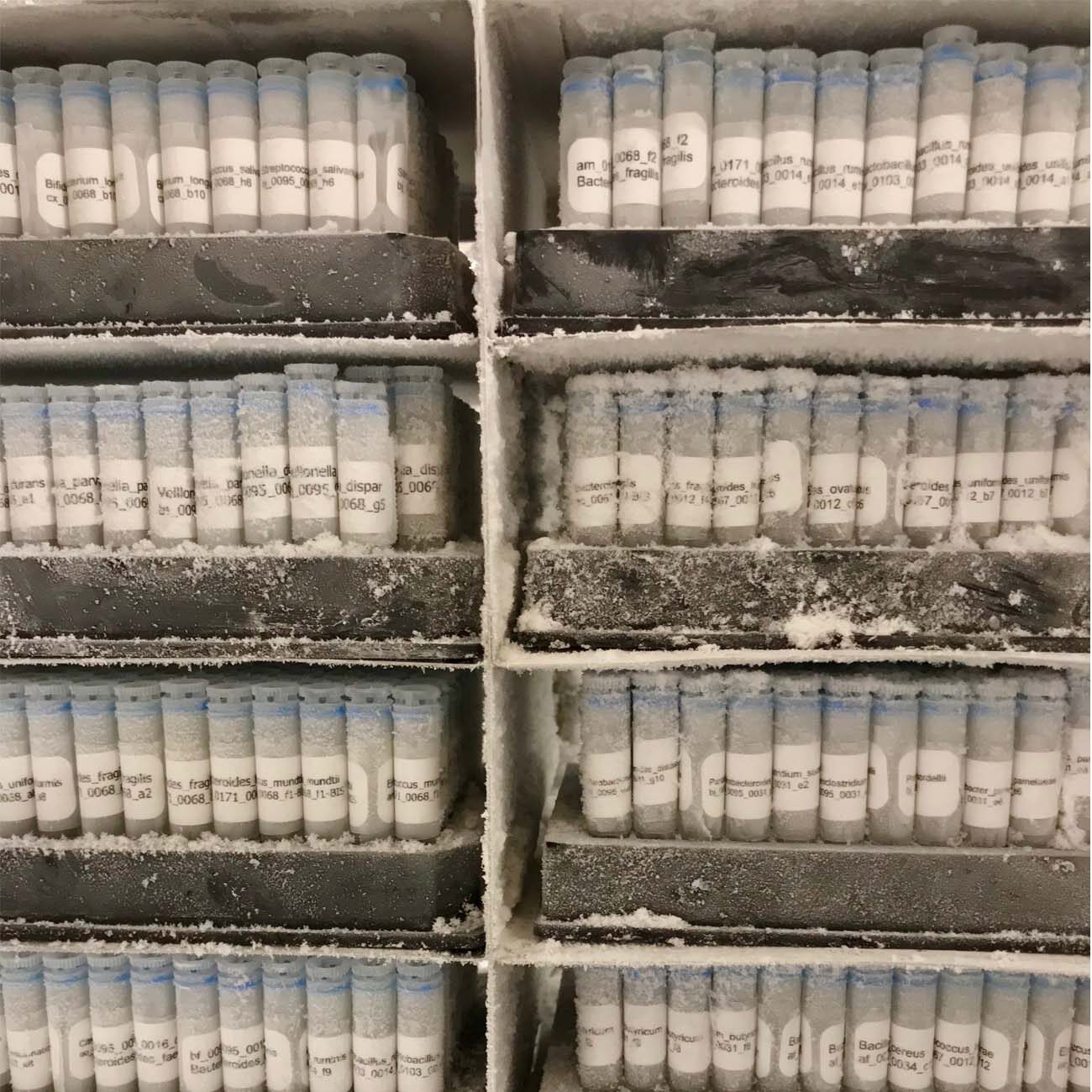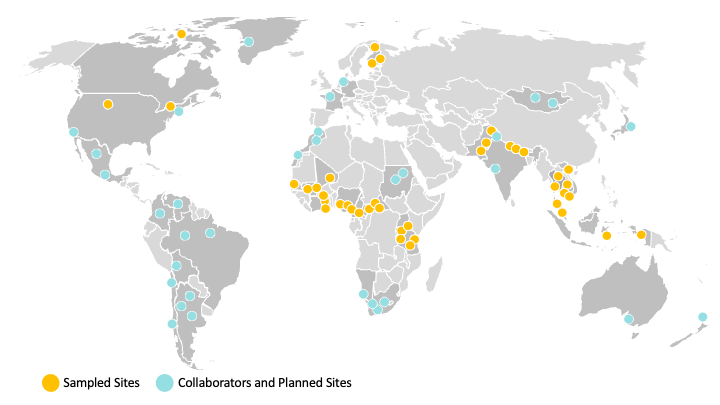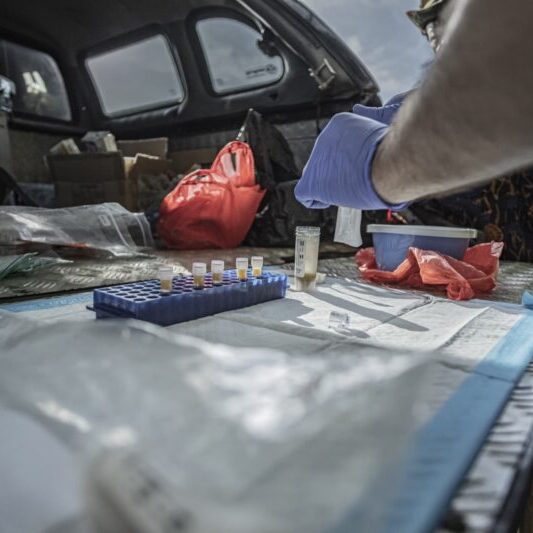
Photo Credit: GMbC biobank of isolated human gut bacterial strains. ©Global Microbiome Conservancy / Photo by Mathilde Poyet.
Explore the GMbC Collection
The Global Microbiome Conservancy (GMbC) Collection at OpenBiome—the most globally representative and accessible microbiome collection of its kind—is radically expanding scientists’ view of the human microbiome. GMbC Starter Kits are now available for nonclinical, noncommercial research.

What is in the GMbC Collection at OpenBiome?
The Global Microbiome Conservancy (GMbC) collection contains stool samples from more than 1,300 individuals over 40 diverse, underrepresented communities. From these samples the GMbC consortium has prepared
- 1,000+ metagenomic surveys
- 10,000 genome-sequenced bacterial cultures
The collection represents more than 450 species groups and covers a wide range of bacterial taxa across multiple phyla, including from some groups that were previously considered as unculturable.
Bacterial Isolates
- Citation for isolates from Cameroon, Ghana, Nigeria, Tanzania: Groussin, Mathieu et al. “Elevated rates of horizontal gene transfer in the industrialized human microbiome.” Cell vol. 184,8 (2021): 2053-2067.e18. doi:10.1016/j.cell.2021.02.052
- Sequencing data and metadata available in dbGAP, Study ID: 38715, Accession: phs002235.v1.p1.
Talk With Us About Your Research
The Global Microbiome Conservancy Program at OpenBiome works with the GMbC Consortium—an international academic network of scientists—to represent, share, and investigate human microbiome diversity.
We'd love to start a conversation if you are:
- A scientist interested in joining the GMbC Consortium and collaborating on microbiome sampling projects
- A scientist looking to work with GMbC materials, data, and/or GMbC consortium members
- Looking to learn more about the GMbC Program at OpenBiome, global biobanking, or microbiome research.
Please let us know more about your interests by filling out the form below.
Catalyzing Microbiome Research
The GMbC collection is providing researchers with the microbes, data, and tools they need to make exciting new discoveries.

Photo Credit: Stool processing in the field. ©Global Microbiome Conservancy / Photo by F. Rondon